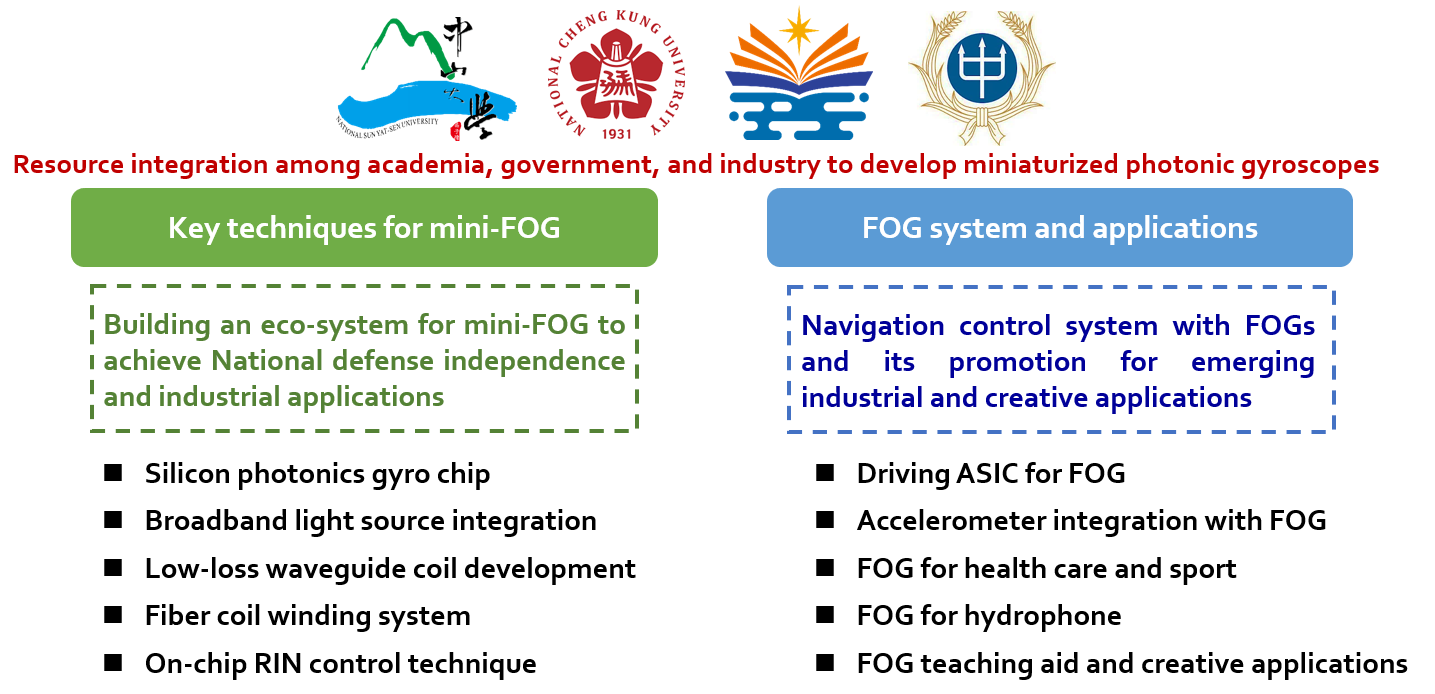ABOUT
The photonic gyroscope research team at NSYSU was formed in a collaborative research project with National Space Organization (NSPO) in 2015. On the basis of the fiber optics gyroscope technique established by Ren-Young Liu, Director of National Chung-Shan Institute of Science & Technology and former senior researcher at NSPO, we started the journey toward the development of next-generation miniaturized photonic gyroscopes. In 2018, NSYSU team was awarded a four-year National Silicon Photonics Elite Program to develop miniaturized silicon photonics driver module for fiber optics gyroscope, and in 2022 we achieved tactical grade gyro performance. Since then, we have received significant attention from the media, industry, government, and academia. Compared with the large-scale investments from govenments and industry in Europe, USA and China, Taiwan’s R&D in high precision fiber optics gyroscope (FOG) can be quite small. NSYSU is one of the few academic institutions that has focused on the development of FOGs in recent years, and has contributed to talent cultivation, technology rooting, and national defense & space independence. In this project, we establish a “Miniaturized Photonic Gyroscope Research Center (MPGRC)”, which will gather the resources from government (MOE, NSTC, MND), industry (TSMC, Wistron, Coretech, and BE Epitaxy Semiconductor Technology), incorporated foundation (NCSIST, TSRI), and academic institutes (NSYSU, NCKU, NKUST), to develop key technologies for miniaturized silicon photonics FOG. The developed FOGs will be applied to underwater vehicles, autonomous vehicles, drones, hydrophones, health care, and sport technology, echoing the spirit of NSYSU’s ocean sustainable development. At the same time, the production and creative application of gyroscope teaching aids will also be carried out, and promoted to primary and secondary schools. The scope of MPGRC coincides with the Critical and Emerging Technologies released by the US and Australian governments in 2022, and is also in line with 5 Sustainable Development Goals (SDGs) adopted by the United Nations in 2015. The Platform Photonics Research Center at AIST, Japan, the Integrated Photonics and Applications Centre (InPAC) at RMIT, Australia, and the Photonic Research Group at UGent, Belgium, are the benchmaking centers. We will conduct personnel exchanges with three centers, jointly carry out research cooperation projects, and seek opportunities for international industry-academia cooperation.



